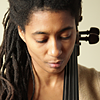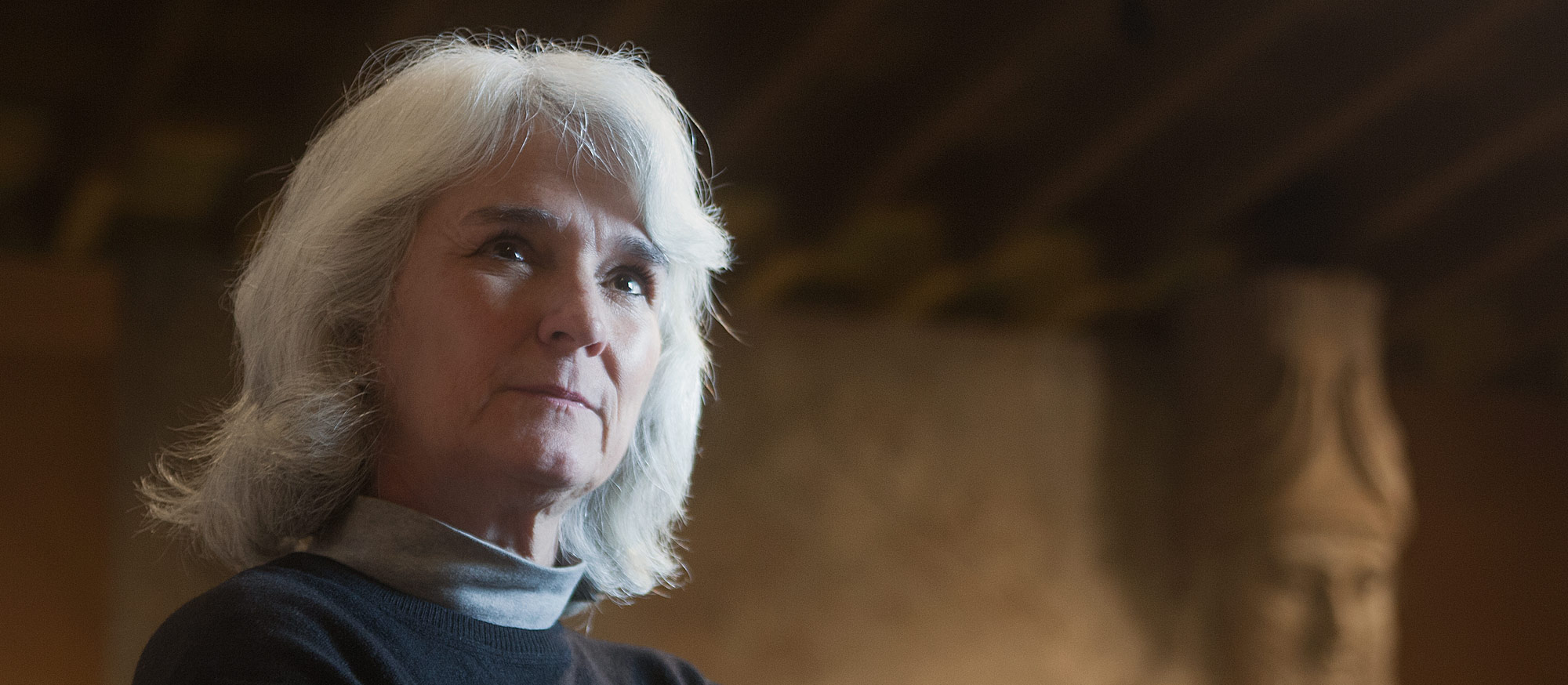

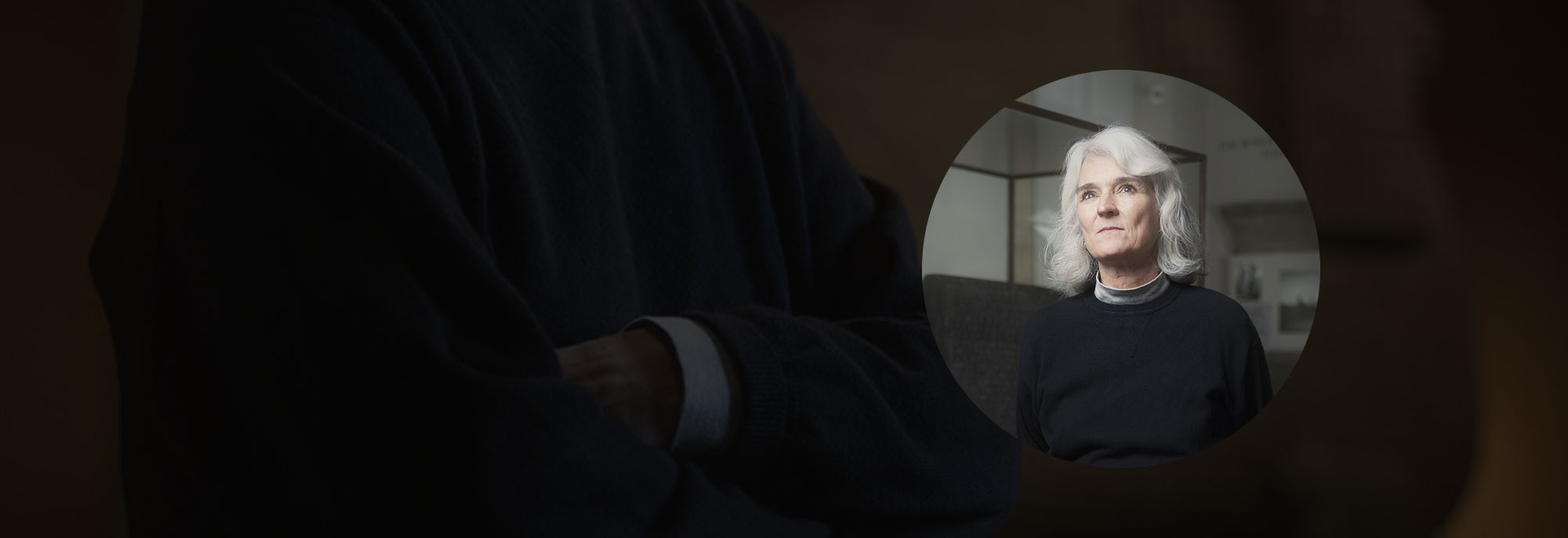
Emily Teeter, 60, is an Egyptologist, research associate, and curator at the Oriental Institute of the University of Chicago, where she’s in charge of special exhibits.
Interview by Aimee Levitt
Photographs by John Sturdy
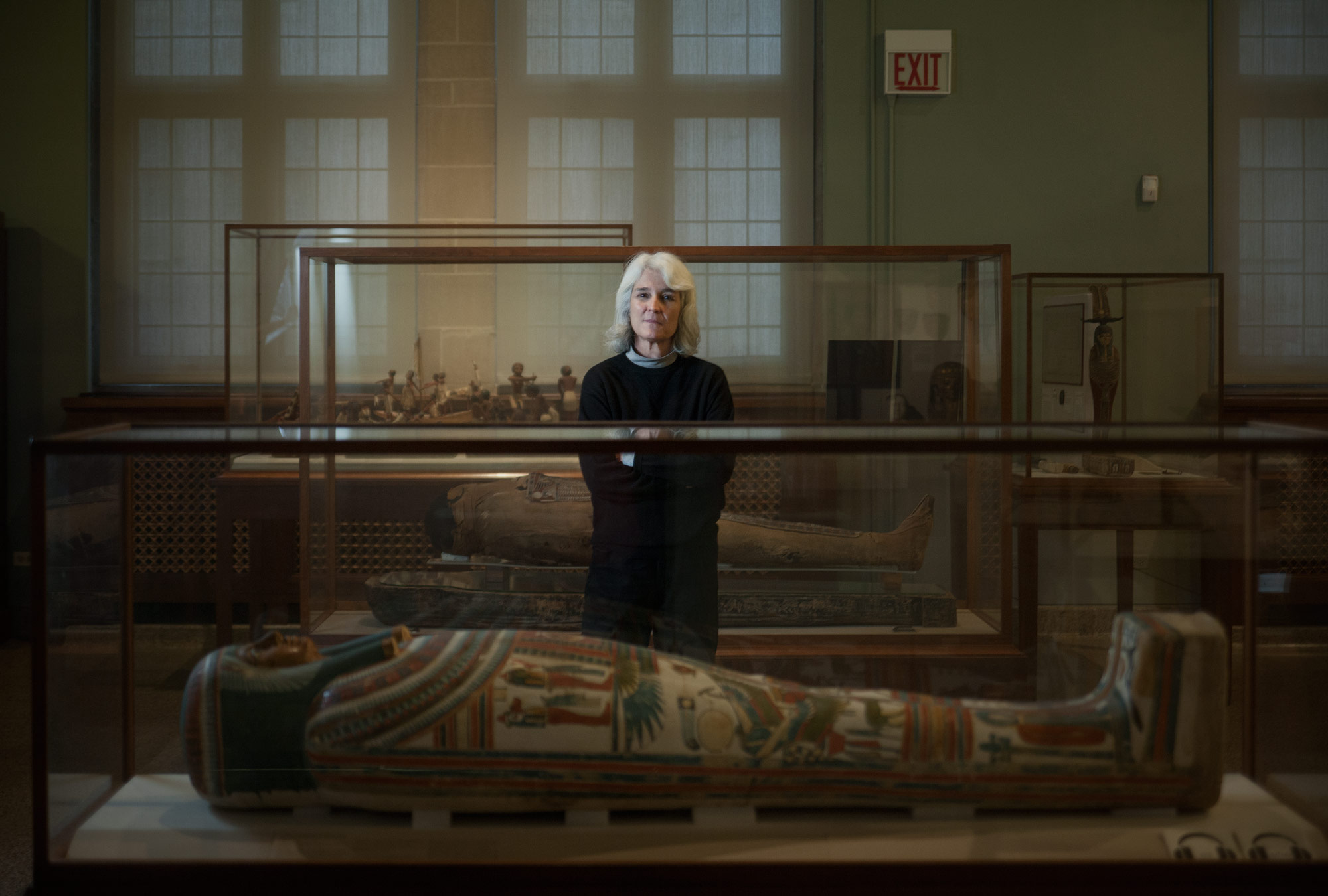
I got interested in Egyptology sort of late, by other people’s standards. I was in college. I got interested, really, because of the whole hieroglyphic language system. I thought, how cool would that be to be able to read what they were writing about themselves? To be an Egyptologist means you can read the language, as opposed to an archaeologist, who does field method and doesn’t necessarily know how to read Egyptian.
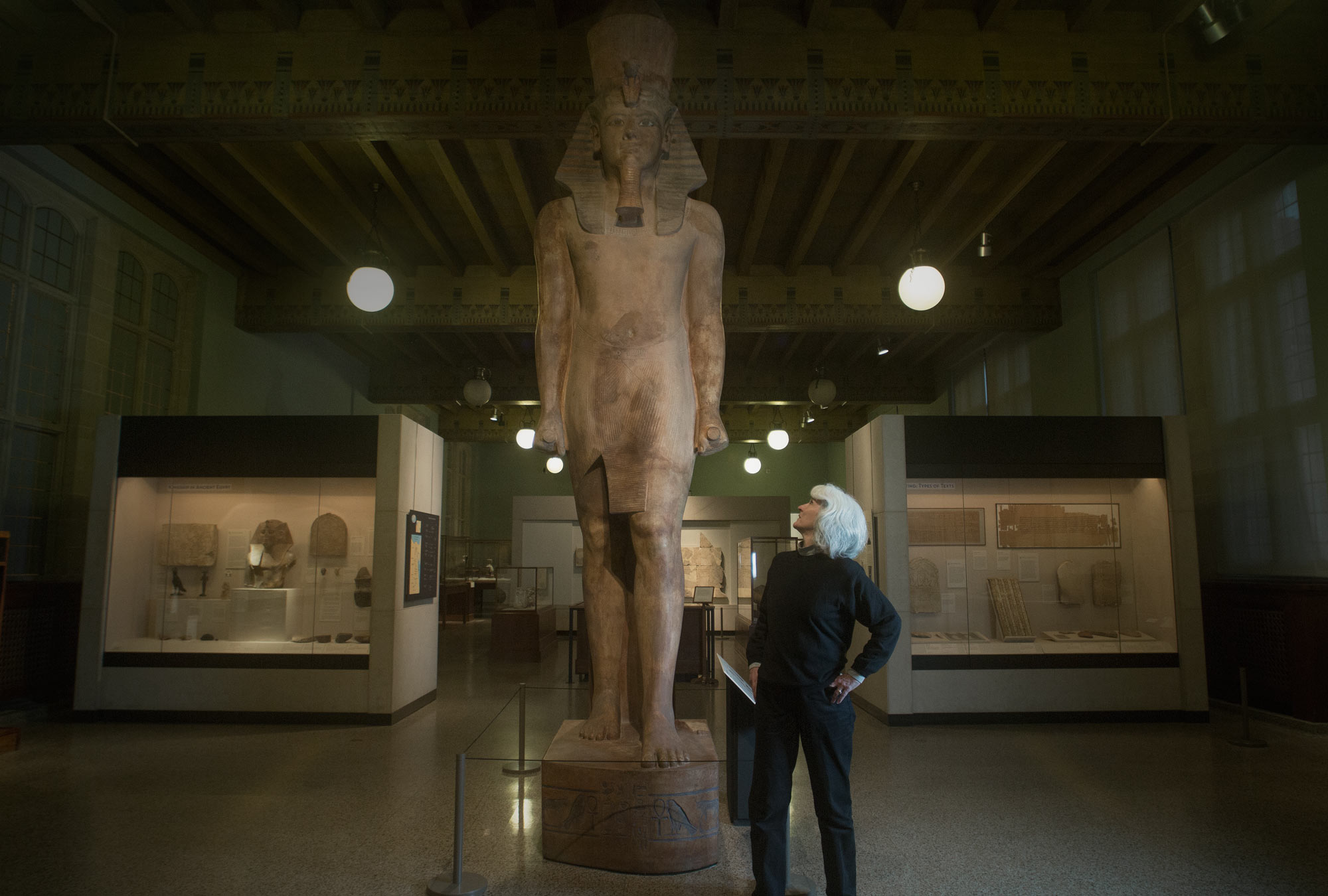
People say some of the richest archaeological sites are museum basements, and it’s true. We have 50,000 Egyptian and Nubian objects—our whole collection is about 300,000 objects—and some of these things have never really been looked at. The process is, you identify an object, you look at it, you translate the inscriptions, and try to make sense out of what the object is. With Egyptology it’s so immediate because if we have a statue or something of a person with his name, or her name, and especially the job descriptions, we can usually find other monuments of that person in other collections throughout the world. So we build up these enormous family trees, these big genealogies.
All these things are really, really important to specialists, but a lot we wouldn’t necessarily put in the galleries. Let’s see what we’ve got here: Here are some written records. These are Islamic pieces. That’s a mud brick from the time of Rameses II. Here’s a human head.
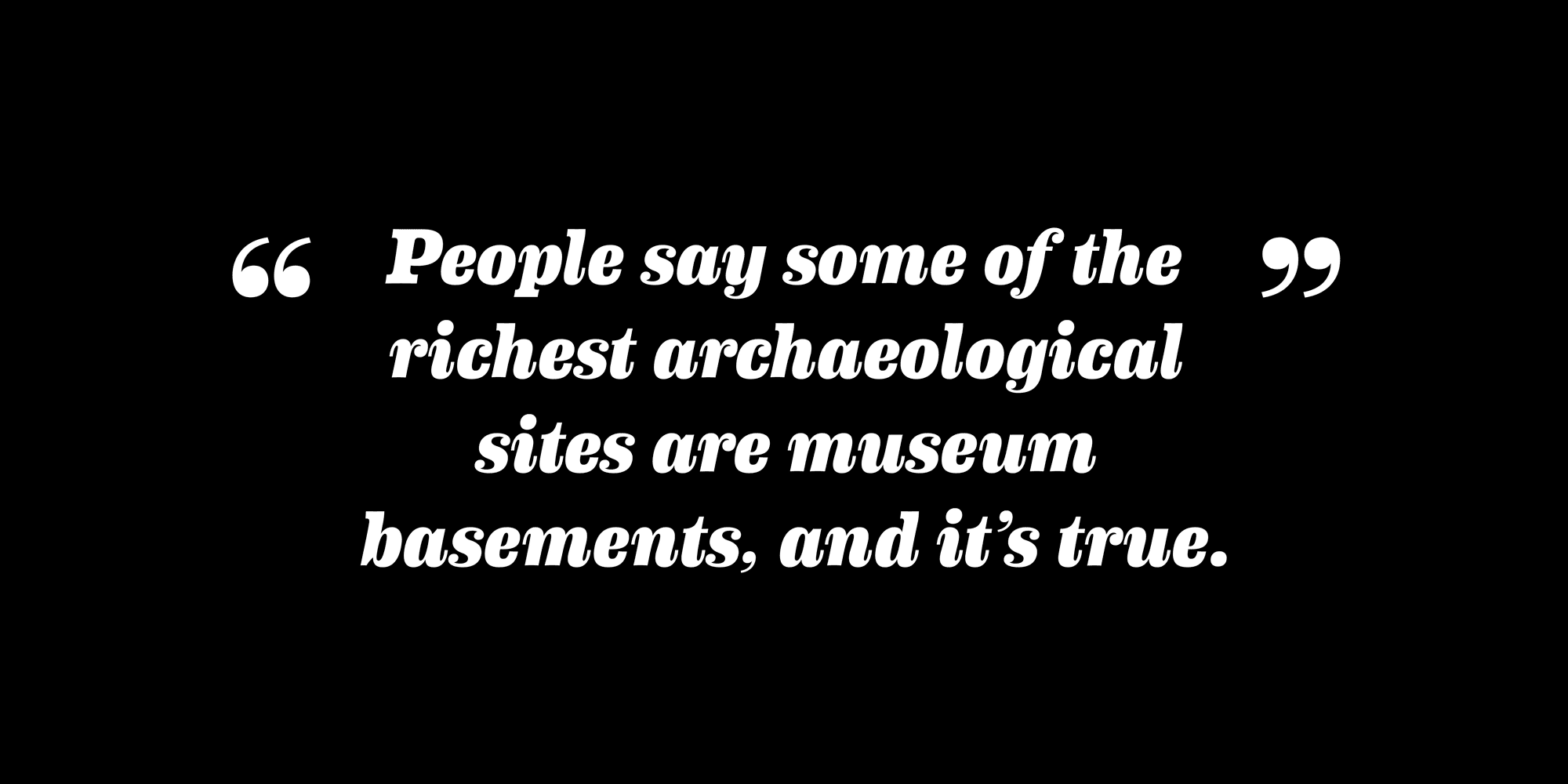
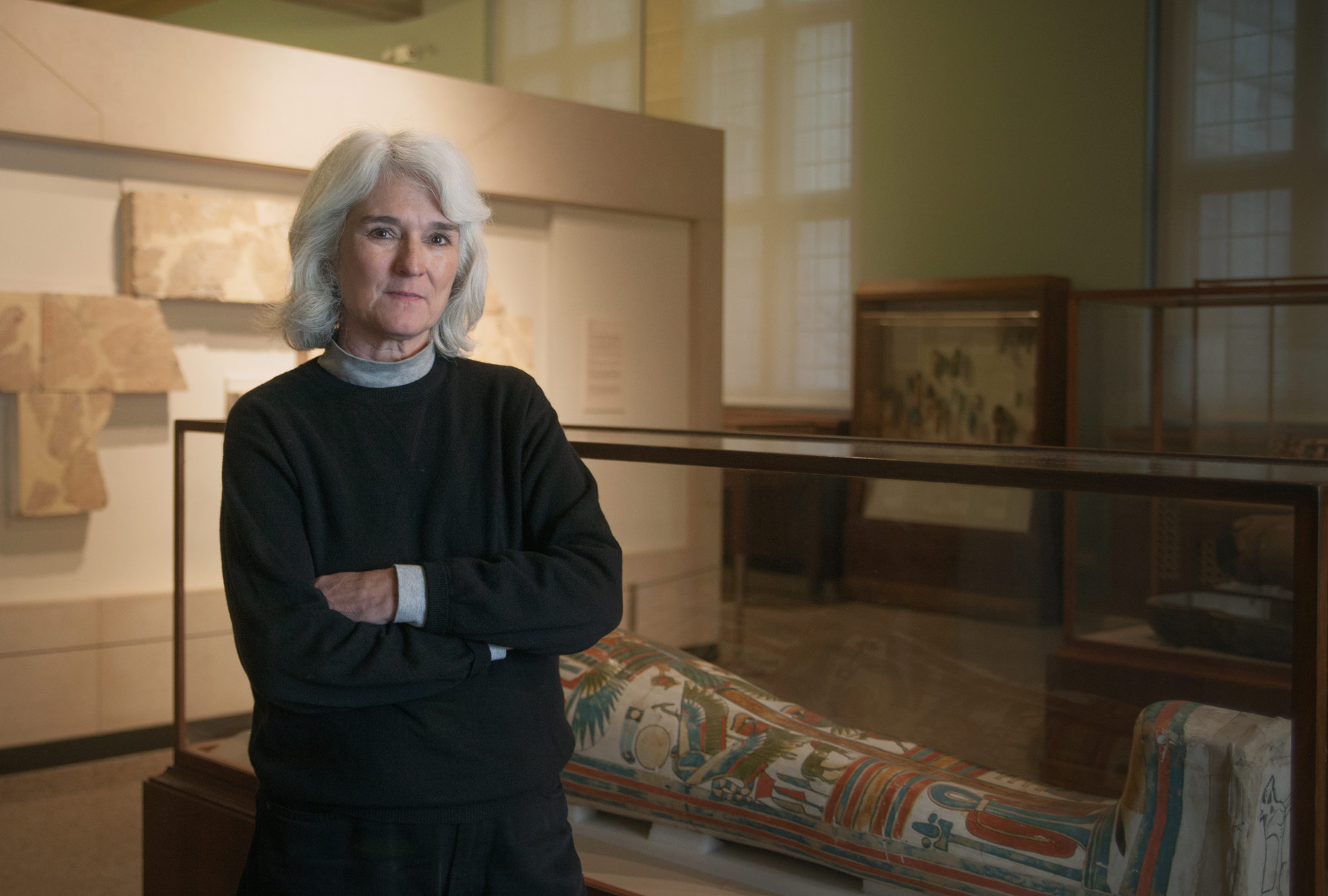
This piece, on the bottom right, it doesn’t look very exciting. It’s a piece of stone with ink—very cursive hieroglyphic writing called hieratic. The thing that’s so fascinating about this text is that this is the first labor strike in history. It dates to about 1180 BC. It talks about how there were men from a particular village—their job was to build tombs for the royal families. And it says they were in the Valley of the Queens, which is in Thebes, Luxor, and they were building tombs for the king’s sons. And they weren’t paid, and they walked off the job. It says they went out of the Valley of the Queens and walked down to another temple that’s still there called the Ramesseum, and they say they sat down on the floor of the temple and put their tools down and said, “No more!” They did a sit-in! The story breaks off there, but the tombs were later finished so presumably they won the strike.
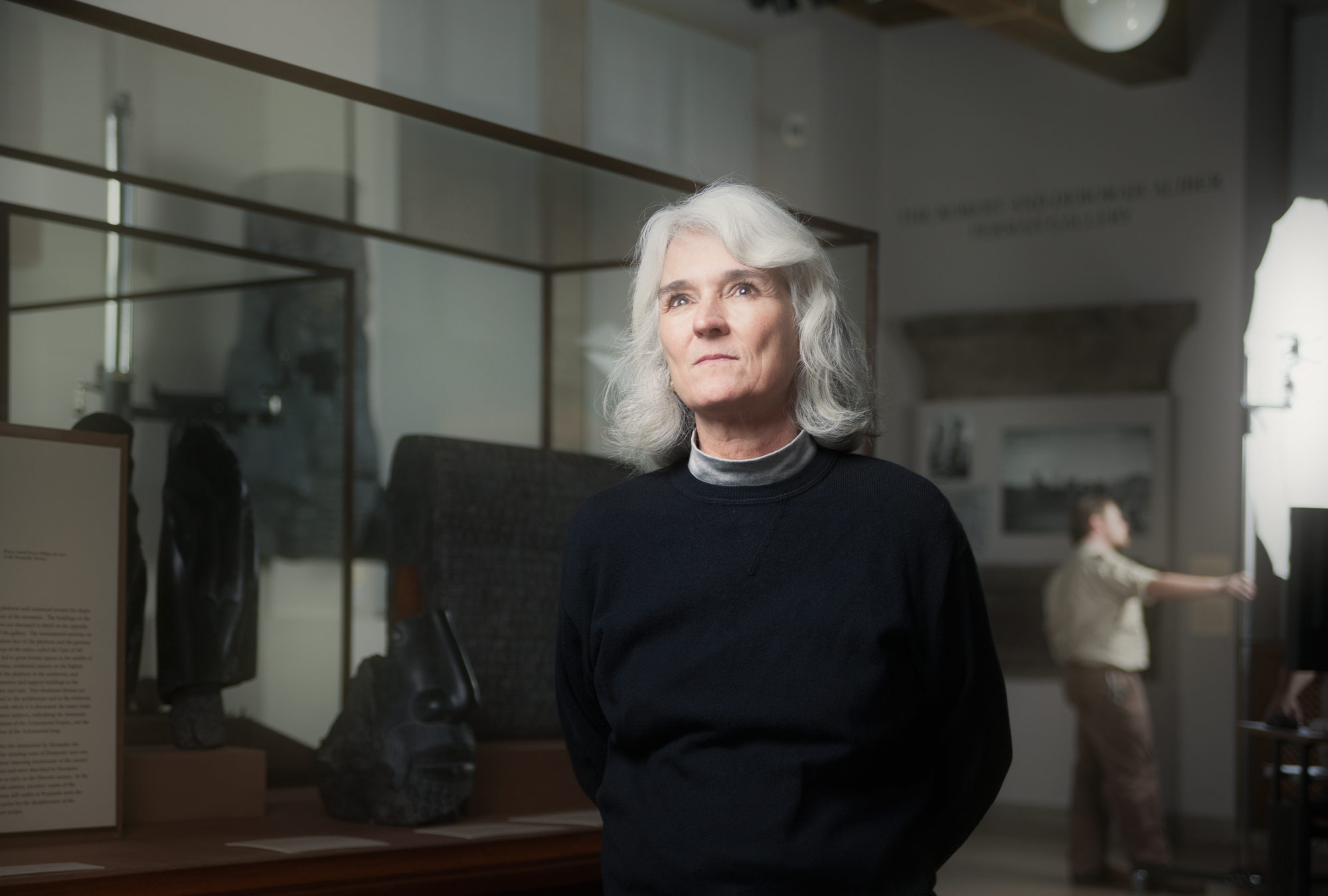
Egyptology has, of course, been affected by the political situation, but it’s not as affected as most people might think. If you read the American press, you think that the whole country is in flames. There are some areas that are not very stable. But, for example, the University of Chicago has a field mission in Luxor that’s been there since 1924. They went out on schedule. And most people in areas like Thebes, Luxor, areas that have been very calm, it’s really not affecting them—other than the issue of if they have graduate students, because the universities do not want graduate students to be going out when there are travel advisories. So yeah, it’s difficult, but it seems to be stabilizing. We think. Perhaps we’re looking at the new normal in Egypt. But our hearts go out to the Egyptians because this is very, very tough for them.
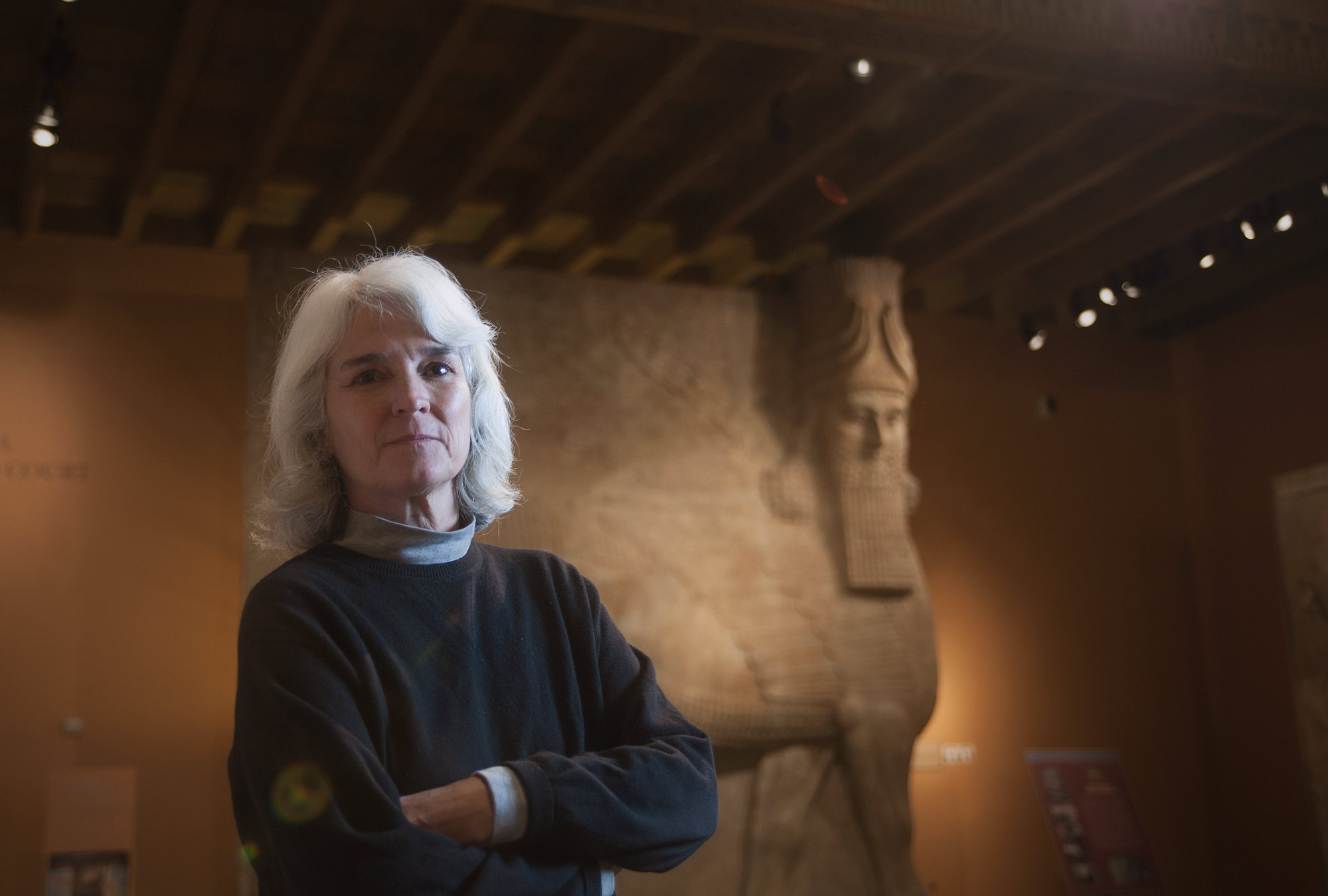
In Egypt, of course, the idea of life after death was if you were a good person, you were born again in the afterlife. And the Egyptians were very, very clever because, as opposed to some other cultures where you didn’t really know what was going to happen after death, the Egyptians made it an absolute replica of what they already knew. Then you’re not quite as anxious. A part of that is, if you’re going to be reborn into the life you knew, you needed food, beverages, clothing, service, friends, everything you had before. And that could be supplied in the afterlife by actually loading stuff into tombs. And these were not only great records of the afterlife, but also they show us so much of daily life because they’re replicating daily life.

People in Chicago probably have no idea of the reputation of the Oriental Institute. Here we are down in Hyde Park, but this is an institute of first magnitude of importance internationally. Even when we do the surveys about our advertising and all that stuff—we do street pole banners and paid advertising—75 percent of the people say it’s word of mouth. Because somebody comes in and goes, “You've got to come down to this place!” ●





















